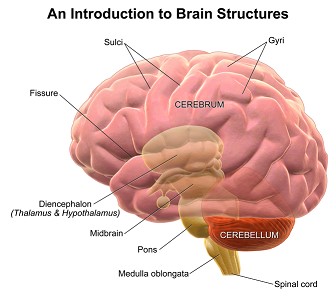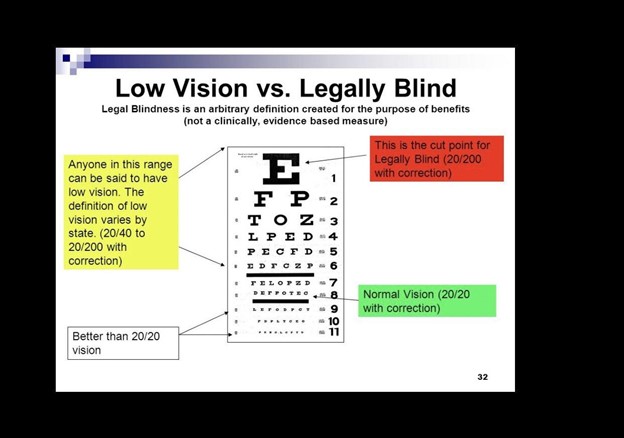The nurse observes the client as he walks into the clinic. She notices a slight tremor of the hands, slowness of movements, and a mask-like facial expression, with postural instability. Which of the following in the client's history are consistent with these observations?
Acute hemorrhagic stroke.
Alzheimer's disease.
Parkinson's disease.
Traumatic brain injury.
The Correct Answer is C
Choice A reason: This is incorrect because acute hemorrhagic stroke is not consistent with these observations. Acute hemorrhagic stroke is a sudden bleeding in the brain that can cause severe neurological deficits, such as paralysis, aphasia, or coma. It does not cause tremors, slowness, or mask-like facial expressions.
Choice B reason: This is incorrect because Alzheimer's disease is not consistent with these observations. Alzheimer's disease is a progressive degeneration of the brain that causes cognitive impairment, memory loss, and behavioral changes. It does not cause tremors, slowness, or mask-like facial expressions.
Choice C reason: This is the correct answer because Parkinson's disease is consistent with these observations. Parkinson's disease is a chronic disorder of the brain that affects movement and coordination. It causes tremors, slowness, rigidity, and postural instability, as well as mask-like facial expressions due to reduced facial muscle activity.
Choice D reason: This is incorrect because traumatic brain injury is not consistent with these observations. Traumatic brain injury is damage to the brain caused by external force, such as a blow, fall, or penetration. It can cause various neurological symptoms depending on the location and severity of the injury, but it does not typically cause tremors, slowness, or mask-like facial expressions.
Nursing Test Bank
Naxlex Comprehensive Predictor Exams
Related Questions
Correct Answer is D
Explanation
Choice A Reason: This is incorrect because encouraging coughing and deep breathing can increase intracranial pressure (ICP), which is the pressure inside the skull that can affect brain function. Coughing and deep breathing can increase blood flow and oxygen demand to the brain, which can worsen cerebral edema. The nurse should suction the patient as needed and maintain a patent airway.
Choice B Reason: This is incorrect because positioning the patient with knees and hips flexed can increase ICP by reducing venous drainage from the head. The nurse should position the patient with neck and body in alignment and avoid extreme flexion or extension of any joints.
Choice C Reason: This is incorrect because performing nursing interventions once an hour can disturb the patient's sleep and increase ICP by stimulating brain activity. The nurse should cluster nursing interventions and provide quiet and dark environment to promote rest and reduce stress.
Choice D Reason: This is correct because keeping the head of the bed elevated to 30 degrees can decrease ICP by facilitating venous drainage from the head and reducing cerebral blood volume. The nurse should monitor the patient's blood pressure and pulse to ensure adequate cerebral perfusion.

Correct Answer is B
Explanation
Choice A Reason: This is incorrect because full vision loss in one eye does not necessarily mean that the person is legally blind. Legal blindness depends on the visual acuity and visual field of both eyes.
Choice B Reason: This is correct because legal blindness is defined by the World Health Organization (WHO) as having a visual acuity of 20/200 or worse in the better eye with the best possible correction, such as glasses or contact lenses. This means that the person can see at 20 feet what a normal person can see at 200 feet.
Choice C Reason: This is incorrect because inability to see clearly from 200 feet away without corrective lenses may indicate nearsightedness or myopia, but not legal blindness. Nearsightedness can be corrected with lenses or surgery.
Choice D Reason: This is incorrect because bilateral visual impairment of 20/60 or greater does not meet the criteria for legal blindness. Visual impairment is defined by WHO as having a visual acuity of less than 20/60 but better than 20/200 in the better eye with the best possible correction.

Whether you are a student looking to ace your exams or a practicing nurse seeking to enhance your expertise , our nursing education contents will empower you with the confidence and competence to make a difference in the lives of patients and become a respected leader in the healthcare field.
Visit Naxlex, invest in your future and unlock endless possibilities with our unparalleled nursing education contents today
Report Wrong Answer on the Current Question
Do you disagree with the answer? If yes, what is your expected answer? Explain.
Kindly be descriptive with the issue you are facing.
